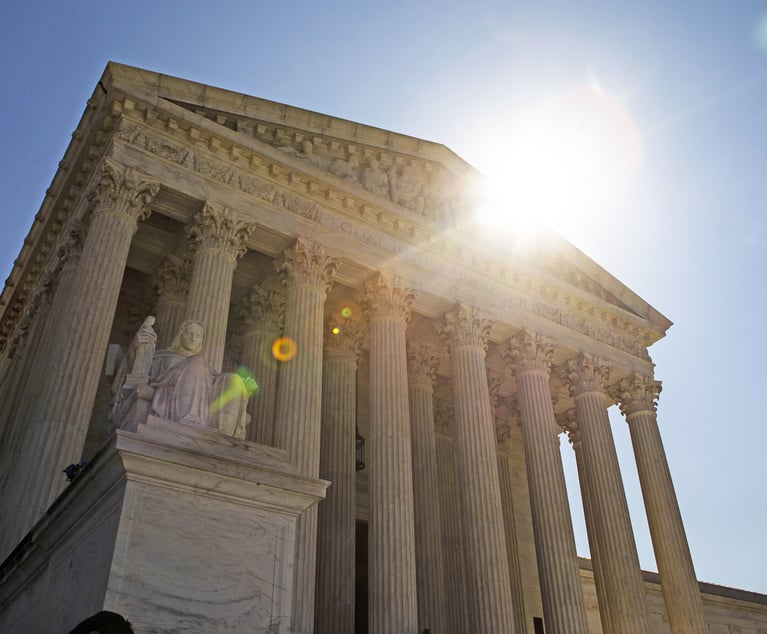 The U.S. District Court for the Southern District of New York recently provided critical guidance on what the court observed as the “psychedelic confusion” surrounding the intersection of Bankruptcy Code §365, governing the assumption and rejection of executory contracts, and Bankruptcy Code §503, governing administrative priority. (The classification of any claims entitled to administrative priority status would allow for such claims to be paid in full, as opposed to treatment as prepetition unsecured claims which would receive a discounted distribution.) Specifically, in Finance of America v. Mortgage Winddown (In re Ditech Holding), No. 21-cv-10038 (LAK), 2022 WL 4448867 (S.D.N.Y. Sept. 23, 2022), U.S. District Court Judge Lewis A. Kaplan sought to answer the “single question” of in what circumstances (if any) a postpetition breach of an executory contract could give rise to an administrative expense priority claim? (Bankruptcy Code §365(g) provides that rejection of a prepetition contract “constitutes a breach of contract” immediately prior to the debtor’s bankruptcy filing, meaning the resulting rejection damage claim is a general unsecured claim. See 11 U.S.C. §365(g). As a result, the payment of the claim “can be thought of as being in little tiny Bankruptcy Dollars, which may be worth only ten cents in U.S. dollars.” Cohen v. Drexel Burnham Lambert Group (In re Drexel Burnham Lambert Group), 138 B.R. 687, 706 (Bankr. S.D.N.Y. 1992) (quoting Jay Lawrence Westbrook, A Functional Analysis of Executory Contracts, 74 Minn. L. Rev. 227, 228 (1989)).) The court rejected the Bankruptcy Court’s analysis that focused on whether a contract extension created a new postpetition contract or modified an existing contract under state law. See Finance of America v. Mortgage Winddown (In re Ditech Holding), No. 19-10412 (JLG), 2021 WL 4928724 (Bankr. S.D.N.Y. Oct. 21, 2021). Instead, the court concluded that the appropriate test is whether the postpetition breach was within the parties’ “fair contemplation” at the time they entered the contract. If a postpetition breach was not within the parties’ fair contemplation, then the breach is deemed to arise postpetition and the resulting claims are eligible for administrative expense priority to the extent they constitute “actual, necessary costs and expenses” of preserving the estate.
The U.S. District Court for the Southern District of New York recently provided critical guidance on what the court observed as the “psychedelic confusion” surrounding the intersection of Bankruptcy Code §365, governing the assumption and rejection of executory contracts, and Bankruptcy Code §503, governing administrative priority. (The classification of any claims entitled to administrative priority status would allow for such claims to be paid in full, as opposed to treatment as prepetition unsecured claims which would receive a discounted distribution.) Specifically, in Finance of America v. Mortgage Winddown (In re Ditech Holding), No. 21-cv-10038 (LAK), 2022 WL 4448867 (S.D.N.Y. Sept. 23, 2022), U.S. District Court Judge Lewis A. Kaplan sought to answer the “single question” of in what circumstances (if any) a postpetition breach of an executory contract could give rise to an administrative expense priority claim? (Bankruptcy Code §365(g) provides that rejection of a prepetition contract “constitutes a breach of contract” immediately prior to the debtor’s bankruptcy filing, meaning the resulting rejection damage claim is a general unsecured claim. See 11 U.S.C. §365(g). As a result, the payment of the claim “can be thought of as being in little tiny Bankruptcy Dollars, which may be worth only ten cents in U.S. dollars.” Cohen v. Drexel Burnham Lambert Group (In re Drexel Burnham Lambert Group), 138 B.R. 687, 706 (Bankr. S.D.N.Y. 1992) (quoting Jay Lawrence Westbrook, A Functional Analysis of Executory Contracts, 74 Minn. L. Rev. 227, 228 (1989)).) The court rejected the Bankruptcy Court’s analysis that focused on whether a contract extension created a new postpetition contract or modified an existing contract under state law. See Finance of America v. Mortgage Winddown (In re Ditech Holding), No. 19-10412 (JLG), 2021 WL 4928724 (Bankr. S.D.N.Y. Oct. 21, 2021). Instead, the court concluded that the appropriate test is whether the postpetition breach was within the parties’ “fair contemplation” at the time they entered the contract. If a postpetition breach was not within the parties’ fair contemplation, then the breach is deemed to arise postpetition and the resulting claims are eligible for administrative expense priority to the extent they constitute “actual, necessary costs and expenses” of preserving the estate.
But even if the breach was foreseeable and the resulting claims arise prepetition, the analysis does not end here. Judge Kaplan recognized the well-established equitable claim of quasi-contract (or quantum meruit)—something the Bankruptcy Court failed to do. That is, where a debtor elects to receive goods or services postpetition the party supplying goods or services is eligible for administrative priority if the estate receives a demonstrable benefit.






